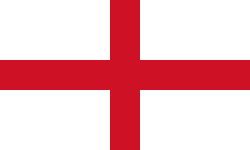This article has multiple issues. Please help improve it or discuss these issues on the talk page . (Learn how and when to remove these messages)
|
| | |
| Total population | |
|---|---|
| 23,914 British citizens [1] | |
| Languages | |
| Portuguese, English | |
| Religion | |
| Protestantism · Roman Catholicism | |
| Related ethnic groups | |
| Other White Brazilians |
| Part of a series on |
| English people |
|---|
 |
| Culture |
| Music |
| Language |
| Cuisine |
| Dance |
| Religion |
| People |
| Diaspora |
English Brazilians (Portuguese : Anglo-brasileiros) are Brazilians of full, partial or predominantly English ancestry or English-born people residing in Brazil.[ citation needed ]